
Growing a business often comes with a process of trial and error. While each landscape, lawn care or tree care company is different, seeing what techniques and best practices have worked for others can save professionals valuable time and resources. Three landscape industry leaders share what they’ve done to elevate their businesses, culture and branding — and how it all stems from their teams.
By the Numbers
Companies can’t manage what they don’t measure, which is why Caretaker Landscape and Tree Management, based in Gilbert, Arizona, began focusing on their metrics the past few years, says Matt White, owner and CEO. That required them to make a massive internal cultural shift.
“We always managed our company based on our financials but never collected enough data to have any real visibility into our numbers,” White explains.
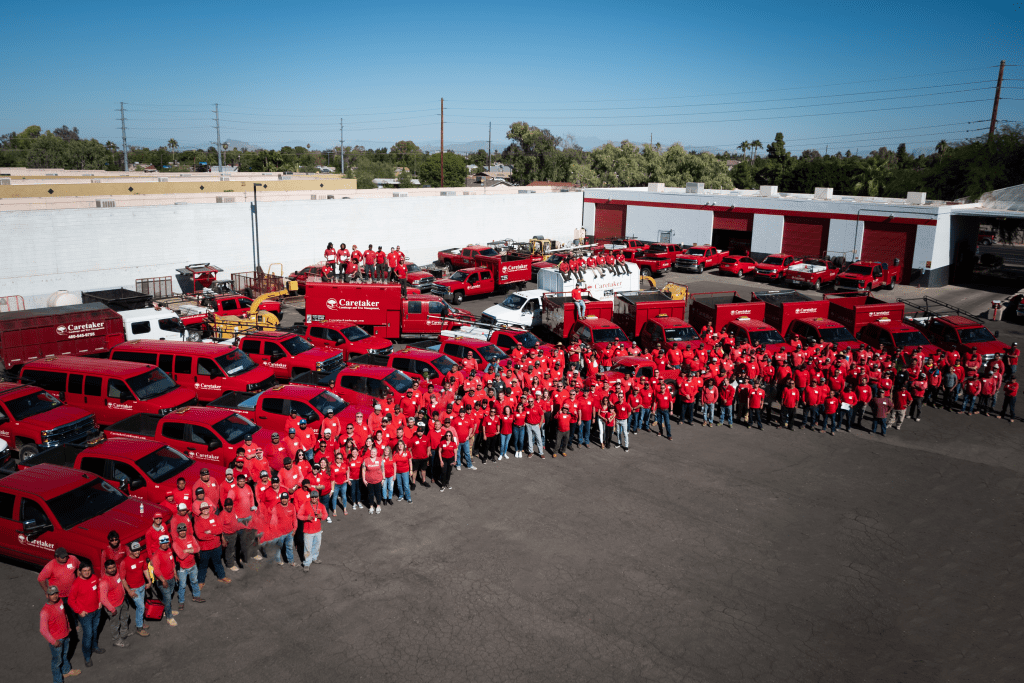
The company provides landscape maintenance, tree management, water management, snow management, enhancements, design and landscape construction services to primarily commercial properties in the metro areas of Phoenix, Arizona, and Denver, Colorado.
That concentration on metrics also required them to implement new technology — including estimating, supply chain, project management and accounting software. While there were available landscape-specific software systems, they decided to take a more custom approach.
“We felt like we could invest and create one that allowed us to get live job-costing data from virtually every department in the company,” White says. “We have spent five years building the system, and while we have completed most of the larger components of the system, it will continue to evolve as each department continues to eliminate non-value-added activities.”
The system is comprised of a central database that pulls data from all of the different systems they use — from payroll and accounting to supply chain and estimating.
“It provides real-time information to help our teams make good, data-driven decisions,” White says. “Now that we are managing by the numbers, we can focus our attention on areas that bring the most value for our team and our clients.”
Part of that value includes an education-based work environment that creates a culture of promotion from within. White says they were looking for a way to build passion in their team to improve the culture and employee retention — and subsequently client retention, as well. For them, providing more education was the key to achieving that goal.
They began by recruiting college-educated managers and implementing resources for employees to earn job-specific certification — later adding to the external training with internal training. That included creating mentors for field teams and bringing in a third-party training resource to teach leadership and management skills.
“All of these investments in our people build more passionate, educated and confident teams,” White says. “We say, ‘The more you know, the more passionate you become.’”
His advice to other professionals looking to elevate their business is to focus on their employees.
“Make sure you hire the right people, treat them like family, create career paths, empower them and give them the right tools to be the best they can be,” White says.
That’s something he’s learned through his decades of industry experience — and one of the main reasons they have maintained the company as a market leader.
“When I came into the business over 30 years ago, we didn’t start with an amazing executive team of landscape professionals with certified labor manning our couple of vehicles,” White says. “I was 14, and my mom, who founded our company, was a retired banker. We were learning as we went, and it didn’t take long before we knew we had to invest in some talent.”
Removing Silos
Instead of primarily investing in direct-growth initiatives or marketing, Green Lawn Fertilizing/Green Pest Solutions focused their resources internally to the heart of the company: the employees.
With about 260 employees across both divisions, the West Chester, Pennsylvania, company provides full-service lawn care and pest control services to primarily residential properties. Their culture and business strategy are focused on finding, developing and retaining the best people, says Josh Willey, chief operating officer.
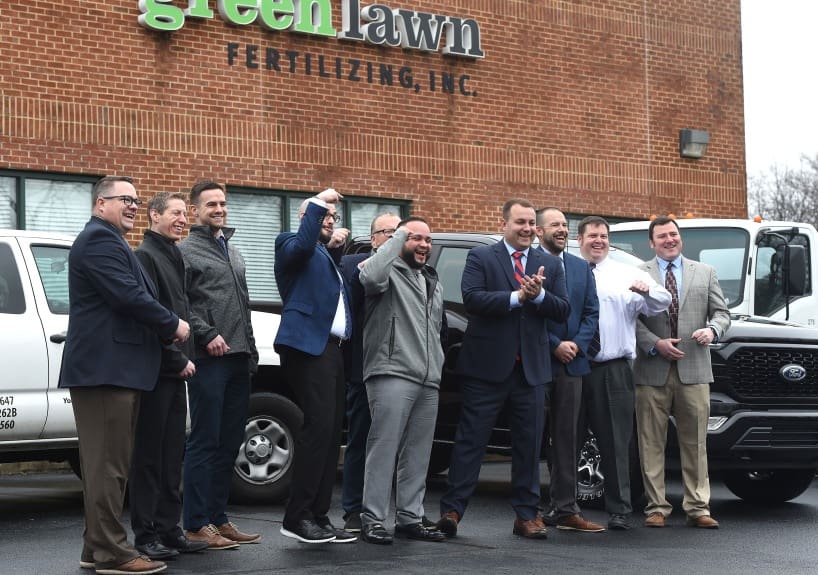
“Our business is highly transactional, and our team is predominantly working independently in the field,” Willey says. “Talented, motivated and well-supported team members deliver a superior experience to customers.”
Recognizing team members is a big focus of this strategy. In addition to their weekly spotlight on a team member who goes above and beyond, they also launched a comprehensive leadership development plan for the front-line team leaders. It’s a one-year program employees must apply for that helps develop high-potential team members for management roles.
“If you have a team that believes in what you’re doing and shares the company’s values, when the business wins, they win as well,” Willey says. “That’s led to higher retention and a healthy, sustainable and scalable business model.”
Other ways they invest in the development of their team include a technical advancement program, new-hire surveys, off-site team building events, competitive rates, family days and an annual truck giveaway for the safety contest winner.
“While we are proud of our reputation as a high-quality service provider, we see it is a natural outcome of the cultural focus on our team more than a direct objective,” Willey says.
Starting three years ago, every manager also began attending staff meetings where they talk through issues and ensure everyone stays updated with what’s going on in each department.
“As the business grows, silos can form,” Willey says. “Our weekly staff meetings are structured to be a very open environment to solve any issues collectively.”
They’ve seen their metrics improve across the board, growing the lawn care division by an average of 26 percent and pest control an average of 15 percent each of the past few years. Willey credits that to their team members.
“Putting our team first results in customer satisfaction and that results in growth and then profitability,” Willey says.
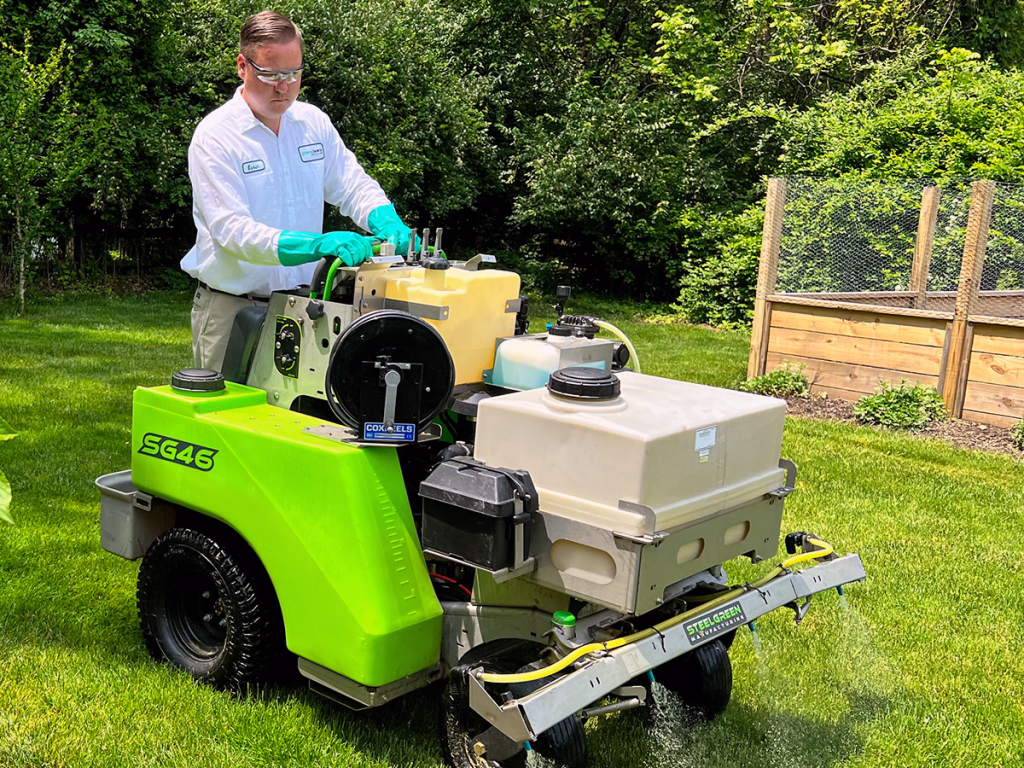
Another change that has helped elevate the company is with their program and products. Going into this year, they moved their lawn care program to using liquid fertilizer that is mixed in-house. The shift required an overhaul of the fill systems in each of their locations, transformation of their ride-on units and a rush order of custom equipment.
They made the shift after seeing supply chain issues and that the cost of granular fertilizer was forecasted to increase by more than 30 percent this year.
“We had the move to liquid on our roadmap for service delivery and results purposes but made the move a couple years early,” Willey says. “So far this season, product costs are flat year-on-year as a percentage of revenue, and results are extremely positive.”
They’ve seen a slight decline in operational efficiency, Willey says, but that is being offset by a 36 percent reduction in service calls. Customer feedback has also been good, with record-high ratings and online reviews.
“By the end of the year, product savings vs. what granular would have cost will fully fund the capital expenses we took on to upgrade the fill systems and equipment,” Willey says.
Taking Ownership
One phrase that won’t be heard at Ryan Lawn & Tree is, “It’s not my job,” says Phillip Fisher, chief operation officer. “Our team members understand that it is their company, and as an owner, you wear many hats,” he adds.
Based in Mission, Kansas, they provide lawn care, tree and plant care, pest control, landscaping, pruning, lighting and irrigation services to primarily residential properties. While many of their team members have a specialty, the company also promotes labor sharing.
“If our irrigation department gets behind, it is not uncommon for a turf-route manager to spend a week with irrigation helping them get caught back up,” Fisher says. “It is also fairly common for departments from different branches to send labor help to other branches that need it. It is a ‘one company, one goal’ mindset.”
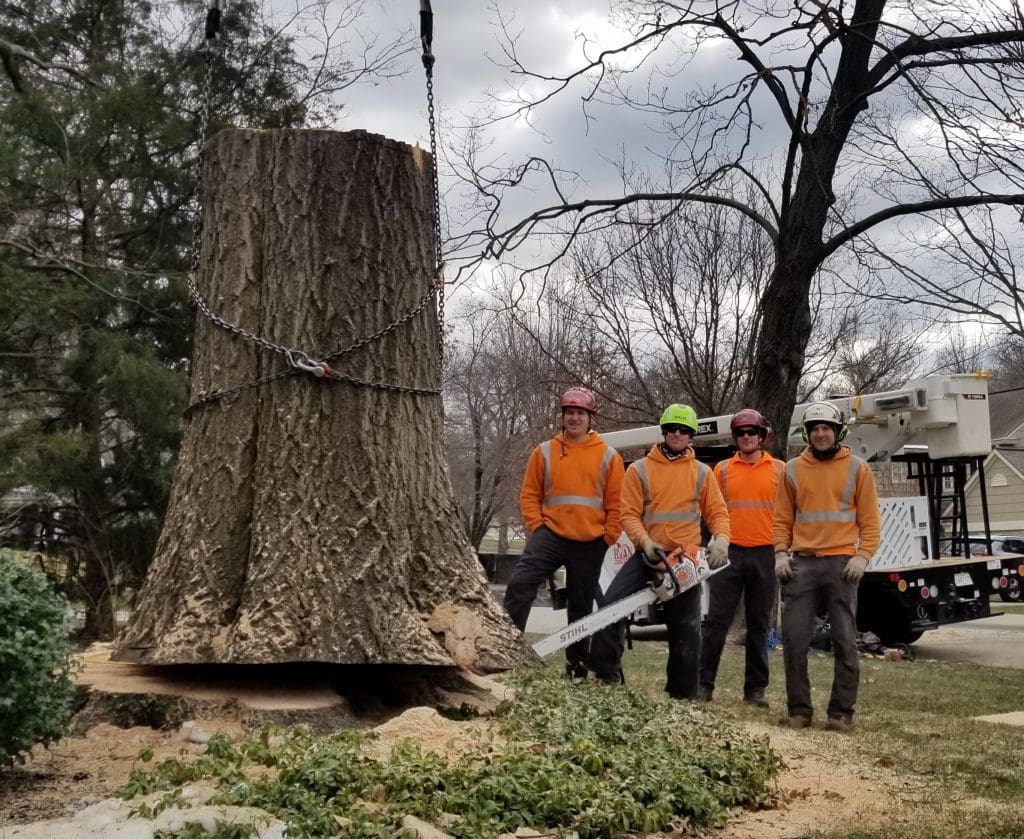
That all stems from a decision Larry Ryan, founder and president, and his wife, Kathy, made to convert the business to an employee stock ownership plan (ESOP) company. Larry spent 10 years in the restaurant industry, where he witnessed firsthand how business owners mistreated employees to make money.
“Larry wanted his employees to be treated fairly and give his employees ownership of the company they worked so hard to help build,” Fisher says.
The process of transferring portions of their stock in the company to the employees took more than a decade. While it wasn’t easy, they say it was well worth it — and the company officially became an ESOP in 1998. That helped establish an ownership mentality that Larry had worked to instill for years.
“Now Ryan team members weren’t only working for a paycheck, they had a stake in the company, and the performance of the company was impacted,” Fisher says. “As the stock price goes up, it is easy to see the value in growth and why it is so important for the company and the individual. It is not only about gaining new clients but being conscious of spending and expenses. It helps everyone hold each other accountable for our actions and creates our own opportunities.”
Another component they used to elevate the business and ownership culture was the Great Game of Business (GGOB). This open-book management system provided financial transparency to every team member — from the CFO to field apprentices.
“Every line item you would see on a financial statement for every department is assigned an owner who is responsible for tracking, forecasting and reporting the numbers,” Fisher says. “Every week, we meet as specific departments, branches and as a whole company to report on and discuss the change in the numbers from one week to the next.”
Many of the line-item owners are those not in a management role. The GGOB allows the team members to better understand the part they play in affecting the numbers and bottom line of the company.
“There are not too many places where every team member has access and the ability to affect the company’s financials,” Fisher says. “We’re taking your hardworking, honest blue-collar worker and giving them hands-on financial literacy experience and education that they could easily take and successfully run their own company — but they stay because they are already owners of Ryan Lawn & Tree.”
Fisher encourages business owners to take the leap of faith when it comes to giving employees ownership and increased responsibilities within the company.
“We have been pleasantly surprised by the individuals who have stepped up when allowed to take on more responsibility,” he says. “Not only their willingness to step up to the plate, but to also knock it out of the park with the results.”
To create that type of ownership culture, companies need to invest in their people. That includes providing the proper training, job stability, career growth opportunities and good wages. The team at Ryan’s is also employed year-round.
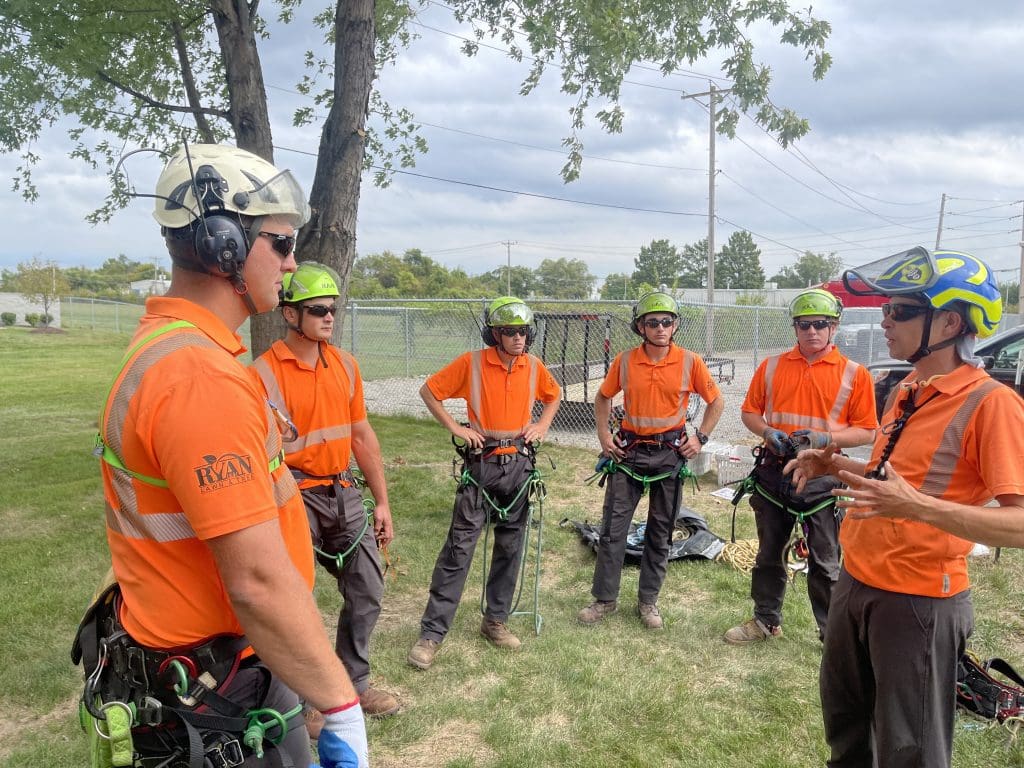
“During our off months when we are ‘losing money,’ we take time to cross-train team members so they can better serve our customers come spring and summer,” Fisher says. “If you take care of your employees, they will take care of the business.”
Not only does this culture empower employees with an ownership mentality, but it also helps them better serve their customers. As a result, the company has seen an increase in customer loyalty.
“We have nearly 1,000 customers who have been with Ryan for 20-plus years,” Fisher says. “That’s saying something when the average life cycle of a customer in the green industry is three-and-a-half years.”
These practices have also become a tool for branding and attracting higher-quality talent — including former business owners who joined their team. The company doesn’t compete on price, Fisher says, instead showcasing the value their educated team can provide.
“Not only has our branding of knowledgeable pros helped us with customer acquisition,” Fisher says, “but it also helps set the standard in recruiting new team members and set Ryan apart as a leader in the green industry as we expand into new markets.”
Online reviews are another critical part of the company’s success, so they work to encourage customers to leave feedback. They use a customer survey tool that incorporates a net promoter score. When someone gives them either a nine or 10, they follow up and ask them to leave a Google or Facebook review.
“Last year alone, we received more than 1,500 positive online reviews,” Fisher says. “Many of these reviews mention the high level of education and knowledge our Ryan pros offer when interacting with customers.”
Fisher says they hope to leave a mark well beyond their company and market. “Our goal is to raise the green industry as a whole, and when each company decides to promote higher standards, we will all get better,” Fisher says. “A rising tide lifts all ships.”
This article was published in the Sept/Oct issue of the magazine. To read more stories from The Edge magazine, click here to subscribe to the digital edition.

